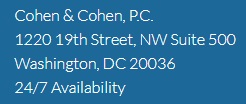If you are pulled over at a checkpoint, on the side of road, or during any other circumstance under the suspicion of drunk driving, you’ll likely be asked to take a breathalyzer test. If you refuse to take this test, you could be putting yourself at risk for serious penalties.
According to the National Highway Traffic Safety Administration (NHTSA), every state across the country has legislation stating that a blood-alcohol content (BAC) level of .08% or higher is illegal when operating a vehicle. Law enforcement agents have the ability to ask for suspected drunk drivers to submit to a chemical test to determine their BAC. The most common test is a breathalyzer, which may be administered on the roadside. While you technically could refuse to take this test, it’s important to know that this refusal comes with consequences.
Implied Consent Laws
The NHTSA states that at least 20% of individuals who are stopped by law enforcement for suspicion of drunk driving will refuse to take a breathalyzer test. Under the law, each person who operates a vehicle does so as a privilege granted to them and not as a right. The laws that govern this privilege to drive are called implied consent laws. A driver is allowed to operate a vehicle because they have given their consent to test their blood-alcohol level at any time that a law enforcement officer deems it appropriate to do so. In exchange for this consent, citizens are given the privilege of driving.
If you refuse to consent to a breathalyzer test under a valid circumstance, you are violating your own agreement. By having a driver’s license, you have already given your consent to be tested. If you suddenly refuse to consent, your license could be automatically suspended or revoked. Additional penalties may include a heavy fine or jail time as well. It is not uncommon for a state to review a refusal and give the offending party up to 12 months of suspension on a driver’s license. If you have a DUI on your record, the penalties can be even more severe.
“No-Refusal” Enforcement
Many states now have further laws going beyond the implied consent laws and forcing drivers to take a breathalyzer test. This type of enforcement is referred to as the “no-refusal” law. This means that if someone refuses to take a breathalyzer test at any time during a traffic stop or at the police station, the law enforcement officer can ask a judge for a warrant via electronic or mobile devices. This warrant gives the officer full authority to force someone to take a breathalyzer test or face jail time immediately after blood is drawn by force for a BAC test.
Nearly 30 states have enacted this type of law, which gives law enforcement complete authority to administer a breathalyzer test or draw a suspect’s blood to determine if they are intoxicated above the legal limit. The only choice a suspect may have in these states is to contact a lawyer to discuss how the test should be administered.
No matter the circumstances that lead you to being suspected of drunk driving, it is wise to consult a DUI lawyer DC can count on if you have been charged with a DUI. A lawyer can help you to fully understand your options and your rights under the laws in your state.
 Thanks to our friends and contributors from The Law Firm of Frederick J. Brynn, P.C. for their insight into drugged driving cases.
Thanks to our friends and contributors from The Law Firm of Frederick J. Brynn, P.C. for their insight into drugged driving cases.

